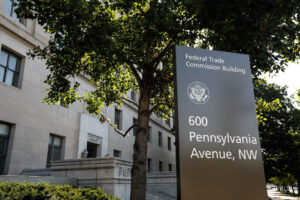
Small business takeaways from FTC ban on noncompete clauses
By onBusiness Practices | Legal
The Federal Trade Commission (FTC) has created a compliance guide for businesses and small entities following issuance of a final rule banning noncompete clauses nationwide.
The ruling becomes effective 120 days after publication in the Federal Register. The FTC predicts this could be in early September.
Small businesses can comply with the final rule by not including noncompetes in future employment contracts, paperwork, or websites, the guide says.
If the business has noncompete clauses in place, it should give notice to those current and former employees who are not considered senior executives.
Senior executives are defined as employees making more than $151,165 or more annually and are involved in policymaking. Companies are allowed to keep existing noncompete clauses in place for senior executives, the FTC says. However, businesses are prohibited from creating new noncompete agreements with future executives.
Businesses are allowed to give notice about the ruling in a number of ways, according to the FTC guide. Notice can be delivered by email, text message, or paper notice by hand or mail. Businesses do not have to send a notice to any employee or former employee they do not have a contact for.
The guide notes that an all-staff email also complies with the rule.
Model language, created by the FTC, on how to notify employees can be found on the FTC website here.
Businesses do not have to report their compliance to the FTC, the guide says.
The FTC guide also says businesses should stop enforcing noncompete clauses, with the exception of senior executives, after the effective date. Any breach of contract that happens prior to the effective date remains enforceable.
Some businesses, such as certain non-profits, sit outside of the FTC’s jurisdiction and will not be impacted by the rule, the guide says. This includes banks, savings and loan institutions, federal credit unions, common carriers, and air carriers.
The rule also does not apply in franchisor/franchisee contracts but it does apply to employees who work at franchises.
It also does not apply to noncompete clauses involving the sale of a business entity, a person’s ownership interest in a business entity, or all or substantially all of a business entity’s operating assets, according to language in the rule.
A seller could still agree to a noncompete clause under the rule. However, it would prohibit a noncompete clause for any workers of a business being sold.
Mark Cunningham, Partner at Jones Walker LLP, also said Wednesday that the selling of a business exception only applies to owners with 25% or more of the ownership stake.
“If you have five owners who own it in equal divisions meaning they have 20% ownership, you could not impose a noncompete on those owners,” Cunningham said. “That’s an important exception.”
Cunningham said the FTC rule stems from previous FTC lawsuits involving fast food chains that placed noncompete clauses on low-income workers.
He said the FTC is most likely to pay attention to any violations against hourly workers who have no leverage.
“They don’t have the resources to go around fighting every noncompete they become aware of,” Cunningham said. “Where they will take a more active role is with small businesses trying to enforce noncompetes on low wage workers.”
The rule is already facing two lawsuits. This includes the U.S. Chamber of Commerce filing a suit Wednesday, according to the New York Times. The article says Ryan LLC, a tax service firm, filed the first suit hours after the ruling on Tuesday.
The firm says in a press release that it seeks to prevent the immense undue burdens the FCT’s rule would impose on service-driven companies of every size nationwide. The firm says it submitted 54 pages of public comments against the rule that FCT received last spring.
Cunningham said litigation will likely be filed by a number of different organizations. He said the suits likely will ask for injunctions to the final rule pending a full trial.
“Businesses will need to pay attention to the litigation and whether courts are issuing injunctions that will delay the implementation or enforcement of the rule,” Cunningham said.
If no injunction is given, businesses will need to comply pending the outcome of litigation, he said.
Images
Photo courtesy of P_Wei/iStock
